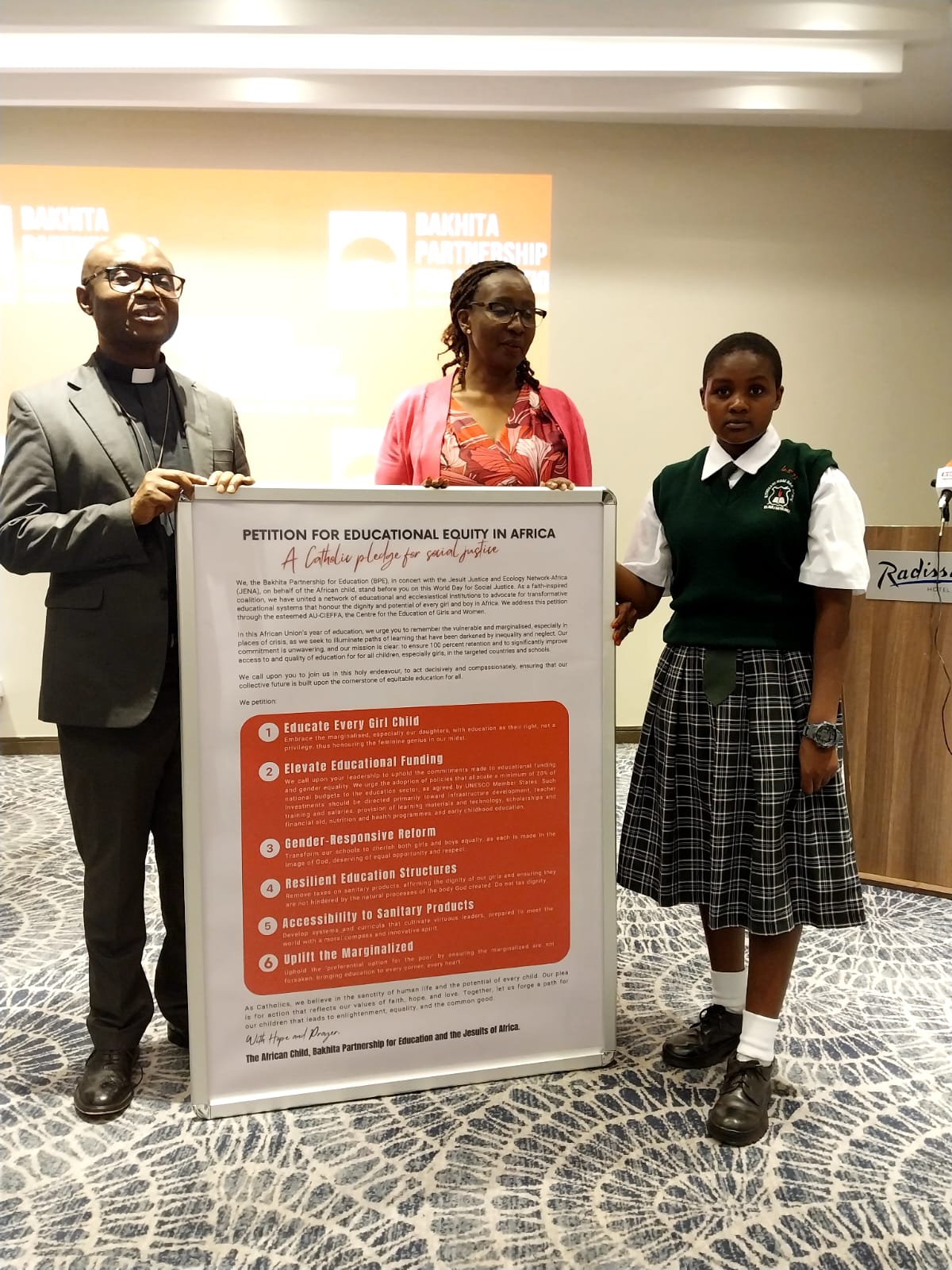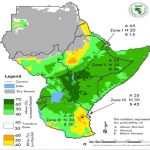As the world marks World Day for social justice, the Bakhita Partnership for Education is advocating for transformative educational systems that honor the dignity and potential of every child in Africa. It has unveiled a new initiative dubbed “The 21st Century African Girl,” which aims to engage African nations to boost their investment in education.
The initiative will raise awareness about the situation girls face when it comes to education in Africa.
The organization has partnered with Jesuit Justice and Economy Network-AAfrica whereby they have sent a petition to the Africa Union to ensure there is inclusivity and access to quality education for vulnerable and marginalized children.
Key areas in the petition include accessibility to sanitary products, gender-responsive reform, resilient education structures, elevating educational funding, and uplifting the marginalized.
Speaking during the launch of the petition, Dagoreti North Member of Parliament Beatrice Elachi urged parents to ensure they play their roles in nurturing their children.
She also promised to continue supporting the vulnerable children not only in her constituency but the entire continent.
Speaking during the event, stakeholders in the education sector from the continent are calling upon governments to empower the youth population with skills sufficient to thrive in this century in a manner that guarantees gender equity.
This comes at a time when data from UNESCO shows 98 million children are out of school in sub-Saharan Africa, half of them being girls.
Renowned professors of economics and advisors to the UN Secretary General on sustainable development goals who addressed members of the press noted that new data reveals the global workforce will increasingly be African.
However, most African youth lack digital literacy skills, and the girl child has been disproportionately left behind.
According to the Director for the Jesuits Justice and Ecology Network Africa and Chairperson of the Bakhita Partnership for Education, Father Charles Chilufya, the initiative underscores its commitment to ensure there’s education equity and empower girls and women across the continent.
He has also urged stakeholders to support this good course by signing the petition on the Bakhita website.
Modes:
Key areas in the petition include accessibility to sanitary products, gender-responsive reform, resilient education structures, elevating educational funding, and uplifting the marginalized.
Speaking during the launch of the petition, Dagoreti North Member of Parliament Beatrice Elachi urged parents to ensure they play their roles in nurturing their children.
She also promised to continue supporting the vulnerable children not only in her constituency but the entire continent.
Speaking during the event, stakeholders in the education sector from the continent are calling upon governments to empower the youth population with skills sufficient to thrive in this century in a manner that guarantees gender equity.
This comes at a time when data from UNESCO shows 98 million children are out of school in sub-Saharan Africa, half of them being girls.
Renowned professors of economics and advisors to the UN Secretary General on sustainable development goals who addressed members of the press noted that new data reveals the global workforce will increasingly be African.
However, most African youth lack digital literacy skills, and the girl child has been disproportionately left behind.
According to the Director for the Jesuits Justice and Ecology Network Africa and Chairperson of the Bakhita Partnership for Education, Father Charles Chilufya, the initiative underscores its commitment to ensure there’s education equity and empower girls and women across the continent.
He has also urged stakeholders to support this good course by signing the petition on the Bakhita website.
The petition’s main points are access to sanitary goods, gender-responsive change, resilient education institutions, increased educational financing, and uplifting the downtrodden.
During the petition’s introduction, Dagoreti North Member of Parliament Beatrice Elachi asked parents to fulfill their roles in nurturing their children.
She also committed to continue assisting underprivileged children not only in her constituency but across the continent.
During the event, players in the education sector from around the continent urged governments to provide the youth population with the skills they need to prosper in this century while ensuring gender justice.
Renowned economics academics and UN Secretary General’s advisors on sustainable development goals who spoke to the press remarked that new data shows that the global workforce will increasingly be African.
However, the majority of African kids lack digital literacy skills, and girls are disproportionately underserved.
According to Father Charles Chilufya, Director of the Jesuits Justice and Ecology Network Africa and Chairperson of the Bakhita Partnership for Education, the effort demonstrates the organization’s dedication to ensuring educational equity and empowering girls and women across the continent.
He has also invited stakeholders to back this noble cause by joining the petition on the Bakhita website.





